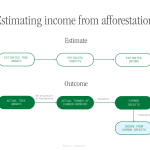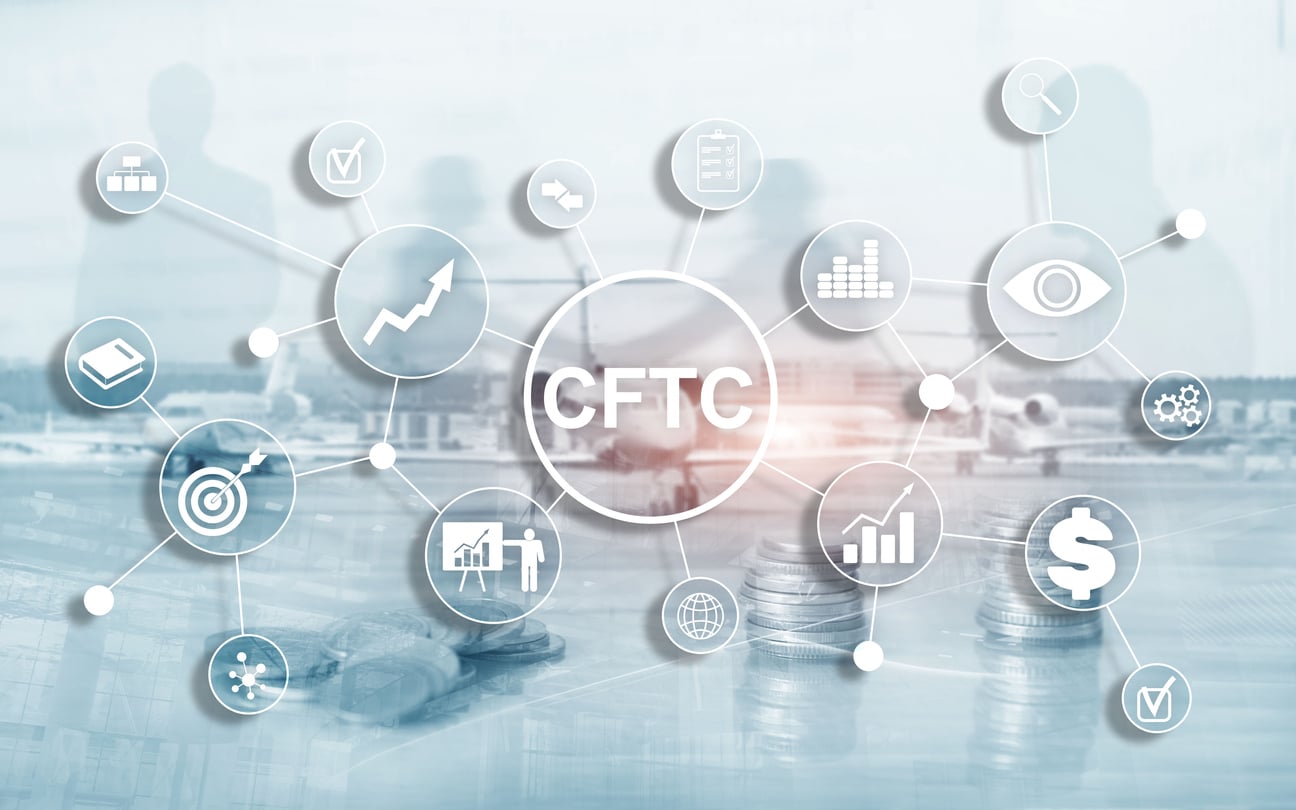The Commodity Futures Trading Commission (CFTC) has recently filed charges against the former CEO of a prominent carbon credit project, alleging misconduct and violations of federal regulations. The case centers on accusations of fraudulent practices and misrepresentation in the trading and marketing of carbon credits, which are critical tools in global efforts to combat climate change. This development raises significant concerns about the integrity of environmental markets and the accountability of leaders in the sustainability sector. As the legal proceedings unfold, the case could have far-reaching implications for the carbon credit industry and its role in addressing environmental challenges.

CFTC Charges Former CEO of Carbon Credit Project
The Commodity Futures Trading Commission (CFTC) has recently filed charges against the former CEO of a prominent carbon credit project. The allegations revolve around fraudulent activities and misrepresentation in the carbon credit market, which has raised significant concerns among investors and environmental stakeholders. This case highlights the growing scrutiny over the integrity of carbon credit projects and the need for stricter regulatory oversight.
Background of the Carbon Credit Project
The carbon credit project in question was initially launched as an innovative solution to combat climate change by reducing greenhouse gas emissions. The project aimed to generate carbon credits through sustainable practices, which could then be traded in the carbon market. However, investigations revealed that the project's claims were overstated, and the actual environmental benefits were minimal.
See Also Reducing Carbon Footprint. Does Your Org Care?
Reducing Carbon Footprint. Does Your Org Care?Details of the CFTC Charges
The CFTC has accused the former CEO of engaging in deceptive practices, including falsifying data and misleading investors about the project's success. The charges include violations of the Commodity Exchange Act, which prohibits fraud and manipulation in commodity markets. The CFTC is seeking substantial penalties and restitution for affected parties.
Impact on the Carbon Credit Market
The charges have sent shockwaves through the carbon credit market, leading to increased skepticism among investors. The case underscores the importance of transparency and accountability in environmental projects, as fraudulent activities can undermine the credibility of the entire market.
Legal Implications for the Former CEO
If found guilty, the former CEO could face severe legal consequences, including hefty fines and potential imprisonment. The case also serves as a cautionary tale for other executives in the environmental sector, emphasizing the need for ethical business practices.
See Also Carbon Project Developers, Do You Really Study the Market Before Developing a Project??
Carbon Project Developers, Do You Really Study the Market Before Developing a Project??Future of Carbon Credit Regulation
In response to this case, regulatory bodies are likely to implement stricter guidelines for carbon credit projects. Enhanced oversight and more rigorous verification processes are expected to be introduced to prevent similar incidents in the future.
| Key Aspect | Details |
|---|---|
| Project Name | Carbon Credit Project |
| Charges Filed By | Commodity Futures Trading Commission (CFTC) |
| Allegations | Fraud, Misrepresentation, Violation of Commodity Exchange Act |
| Potential Penalties | Fines, Restitution, Imprisonment |
| Market Impact | Increased Skepticism, Calls for Stricter Regulation |
Understanding the CFTC's Legal Action Against the Former CEO of a Carbon Credit Project
What Led to the CFTC Charges Against the Former CEO?
The Commodity Futures Trading Commission (CFTC) has taken legal action against the former CEO of a carbon credit project, alleging violations of federal commodities laws. The charges stem from accusations that the executive engaged in fraudulent activities related to the sale and marketing of carbon credits. These credits, which are designed to offset carbon emissions, were allegedly misrepresented to investors, leading to significant financial losses. The CFTC claims that the former CEO knowingly provided false information about the environmental impact and financial viability of the project, misleading stakeholders and undermining the integrity of the carbon credit market.
Key Allegations in the CFTC's Complaint
The CFTC's complaint outlines several key allegations against the former CEO. These include misrepresentation of project details, failure to disclose risks, and manipulation of financial data. The complaint alleges that the CEO overstated the carbon reduction potential of the project, claiming it would offset significantly more emissions than it was capable of. Additionally, the CFTC asserts that the CEO failed to inform investors about the regulatory risks and technical challenges associated with the project. These actions, according to the CFTC, constitute a breach of trust and a violation of commodities trading regulations.
See Also Insights from Nepal: My Journey in Carbon Credit Generation
Insights from Nepal: My Journey in Carbon Credit GenerationImpact on the Carbon Credit Market
The charges against the former CEO have raised concerns about the transparency and credibility of the carbon credit market. Carbon credits are a critical tool in the fight against climate change, allowing companies to offset their emissions by investing in environmental projects. However, cases of fraud and misrepresentation can erode trust in this market, making it harder for legitimate projects to attract investment. The CFTC's action serves as a reminder of the need for strict oversight and accountability in the carbon credit industry to ensure that it remains a viable solution for reducing global carbon emissions.
Legal Consequences for the Former CEO
If found guilty, the former CEO could face severe legal consequences, including fines, penalties, and potential imprisonment. The CFTC has the authority to impose civil monetary penalties and seek restitution for affected investors. Additionally, the case could lead to criminal charges if evidence of intentional fraud is established. Beyond the legal ramifications, the former CEO may also face reputational damage, making it difficult to secure future roles in the environmental or financial sectors. This case highlights the importance of ethical leadership and compliance with regulatory standards in high-stakes industries like carbon trading.
Broader Implications for Environmental Projects
The CFTC's charges against the former CEO have broader implications for the environmental project sector. They underscore the importance of due diligence and transparency in the development and promotion of sustainability initiatives. Investors and stakeholders are likely to become more cautious, demanding greater scrutiny of project claims and verification of environmental benefits. This case may also prompt regulatory bodies to introduce stricter guidelines for carbon credit projects, ensuring that they deliver on their promises and contribute meaningfully to the fight against climate change. Ultimately, the outcome of this case could shape the future of environmental finance and corporate responsibility.
Frequently Asked Questions (FAQ)
What are the charges brought by the CFTC against the former CEO of the carbon credit project?
The Commodity Futures Trading Commission (CFTC) has charged the former CEO of a carbon credit project with fraudulent activities related to the sale of carbon credits. The allegations include misrepresentation of the project's environmental impact, false claims about the legitimacy of the credits, and manipulation of market prices. The CFTC asserts that these actions violated the Commodity Exchange Act and undermined the integrity of the carbon credit market.
How did the alleged fraud impact investors and the carbon credit market?
The alleged fraud had a significant impact on both investors and the broader carbon credit market. Investors were misled into purchasing worthless or overvalued carbon credits, resulting in substantial financial losses. Additionally, the fraudulent activities eroded trust in the carbon credit market, which is crucial for promoting environmental sustainability. The CFTC's actions aim to restore confidence and ensure that such markets operate transparently and fairly.
What penalties could the former CEO face if found guilty?
If found guilty, the former CEO could face severe penalties, including monetary fines, restitution to affected investors, and potential imprisonment. The CFTC may also seek to impose lifetime bans from participating in commodity markets. These penalties are intended to serve as a deterrent against future fraudulent activities and to hold individuals accountable for their actions.
What steps is the CFTC taking to prevent similar fraud in the future?
The CFTC is taking several steps to prevent similar fraud in the future, including enhanced oversight of carbon credit markets and increased enforcement actions against fraudulent schemes. The agency is also working to educate investors about the risks associated with carbon credits and to promote greater transparency in the market. By implementing these measures, the CFTC aims to protect investors and ensure the integrity of environmental commodity markets.
Leave a Reply


Our Recommended Articles